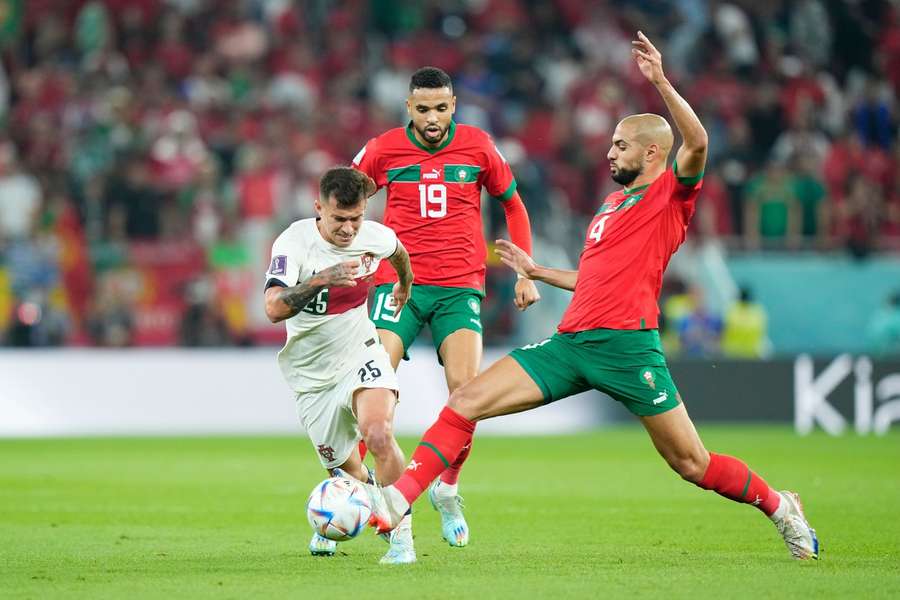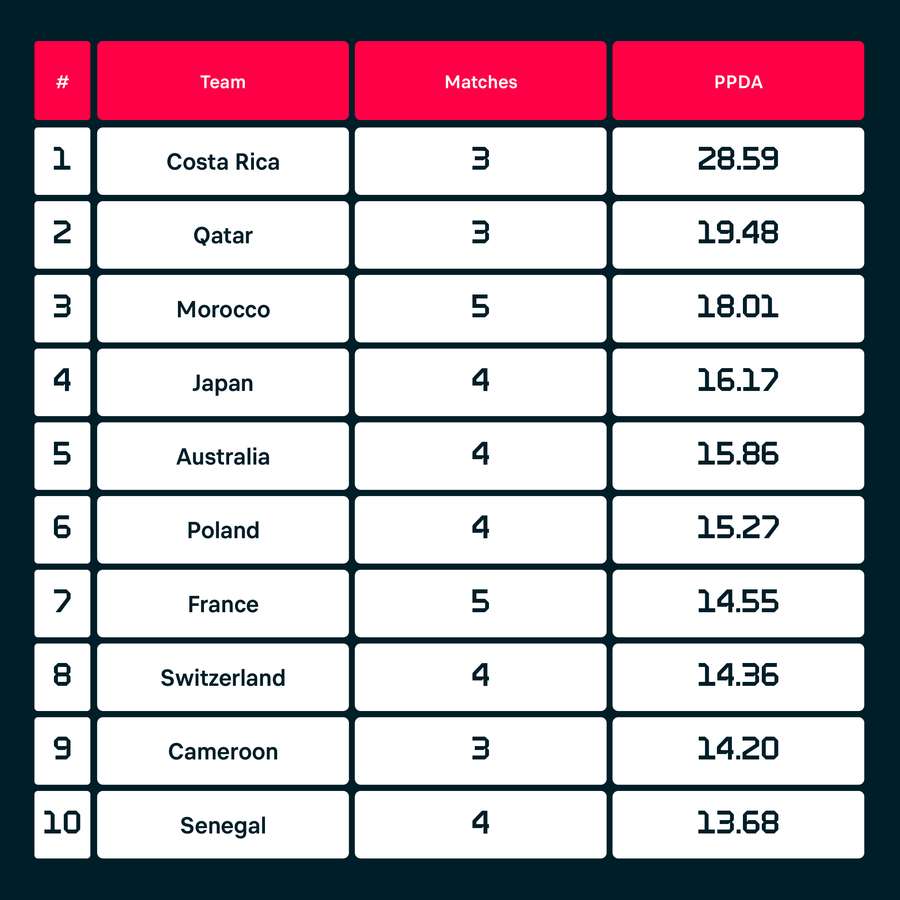11Hacks Data analysis: Morocco's sophisticated and impenetrable defence

How the Moroccans achieved their historic success is obvious at first glance. During their five matches so far, they have conceded only once, and that was with an own goal by Nayef Aguerd.
Moreover, the excellent defensive performances of Walid Regragui's selection are not the work of chance, but simply the result of the fact that he allows his opponents a small number of dangerous goal-scoring opportunities.
So far Morocco concede an average of just 0.93 expected goals (xG) per game in Qatar, and they have already faced Croatia, Belgium, Spain and Portugal in succession.
In duels with the latter two opponents, goalkeeper Bono had to intervene only four times. The rest of the total of 24 attempts were either blocked by the Moroccans or aimed outside the three posts - mostly from positions from which the chance of scoring was mathematically very low.
Without the ball, Morocco play a 4-1-4-1 formation with Sofyan Amrabat in front of the defenders, one of the lowest defensive formations at this World Cup.
While the average team at the tournament carries out active defensive actions on 46 metres of the pitch, Morocco's average is 42 metres. Only Qatar, Cameroon and Costa Rica played in the lower block. Their game plan is to stay compact, limit the space the opponent can play in as much as possible, and go on a quick counter-attack after winning the ball. Morocco only have possession of the ball 34.71% of the time on average, the third lowest behind Japan and Costa Rica.

Moroccans press with a very low intensity. They attack an average of every eighteen passes, which is again the third lowest behind Qatar and Costa Rica. Usually because they try to manipulate the opponent into the spaces along the wings. In such a case, striker En-Nesyri blocks a possible pass by the centre-backs to the pivot, making it impossible to progress through the middle of the field.
On both sides, the defensive work of the wing forwards - Hakim Ziyech and Sofian Boufal - is crucial for them. Their role is to help the full-backs to double the opponent's wing so that 1v1 situations do not occur.
Of the wingers who have played at least 270 minutes in Qatar, Ziyech has recorded the third-highest number of defensive actions behind England's Bukayo Saka and Australia's Mathew Leckie. Boufal is seventh.
In addition, Morocco outnumber their opponents in these areas, even in situations where a larger number of players are involved in the attack, because this is a signal for one of the centre-backs, the nearest central midfielder and defensive midfielder, Amrabat, to move to the ball as well.
The attacking team then have no choice but to try to pass the game or cross into the box, which the defence is usually well prepared for.
At the same time, Morocco try to limit as much as possible the situations where they could face defensive passes after losing the ball. Therefore, even in the attacking phase, both centre-backs with Amrabat stay very low to keep the attacking players in front of them at all times.
What Amrabat is instructed to do, he fulfills it to the letter. Among the defensive midfielders who played at least 270 minutes of the game, according to mathematical models, only Adrien Rabiot from France stopped more dangerous actions with his defensive interventions. And as for the percentage of success in duels on the ground, he belongs to the group of the strongest midfielders at the World Cup.
Regragui's preparation for France is now complicated by the high number of injured defenders. Aguerd and Mazraoui, who did not play in the quarter-finals against PortugalPortugal, were joined by captain Romain Saiss, whose start is still uncertain. It is therefore possible that the Moroccans will start with a different centre-back pairing than the one they intended to play the tournament with. And that would be a big hit to the functioning of the entire team.
A number of favoured teams have already broken their teeth on Morocco's sophisticated defensive system during the tournament. But can they now pass the toughest test?
